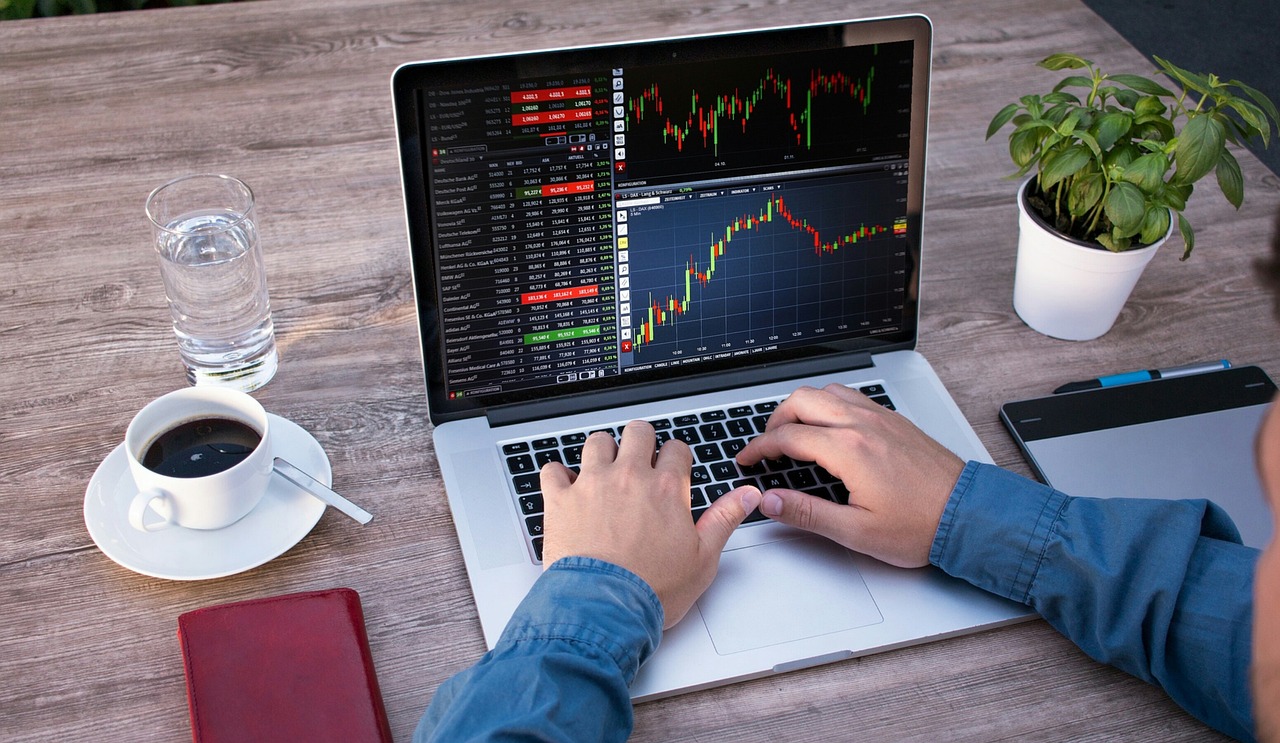Table of Contents
Navigating the global currency market can be a daunting task, but with the right blueprint, it becomes an accessible and potentially rewarding endeavor. Let&8217;s explore the essential elements of Forex success.
Understanding Forex Trading Basics
Forex, or foreign exchange trading, involves buying and selling currency pairs to profit from their price fluctuations. The market operates 24 hours a day, five days a week, offering ample opportunities to trade. To begin, familiarize yourself with essential concepts like currency pairs, pips (price movements), and leverage. A currency pair showcases the value of one currency against another, such as EUR/USD. Pips represent the smallest price movement in a currency pair. Leverage allows traders to borrow money to amplify potential returns, though it increases risk. Beginners should start with a demo account, practice trading, and gradually move to live trading. Mastering these basics lays a foundation for more advanced strategies.
Choosing a Reliable Broker
A good broker is critical for Forex success. Brokers act as intermediaries between you and the market, offering platforms to execute trades. When choosing a broker, consider factors like regulation, fees, trading platforms, and customer support. Opt for brokers regulated by reputable authorities (such as the FCA or SEC) to ensure the safety of your funds. Transparent fee structures prevent hidden costs from eroding profits. Robust trading platforms with technical analysis tools enhance decision-making. Excellent customer support helps resolve issues quickly. Read reviews, compare brokers, and choose one that aligns with your trading goals. The right broker can significantly impact your trading success.
Developing a Trading Strategy
A trading strategy is essential for consistent success. Successful traders rely on well-defined strategies to mitigate emotion-driven decisions. Strategies can be technical or fundamental. Technical strategies use historical prices and volume data to identify trends and patterns, while fundamental strategies analyze economic indicators and political events affecting currency values. Decide on a timeframe (short-term, medium-term, or long-term) and a corresponding strategy. For instance, day traders focus on short-term price movements, while swing traders hold positions for several days or weeks. Consistently apply your strategy and refine it based on performance. A robust strategy keeps trading disciplined and systematic.
Risk Management Practices
Risk management is crucial in Forex trading due to its volatile nature. Proper risk management minimizes losses and protects capital. Start by determining your risk tolerance – the maximum amount you&8217;re willing to lose per trade. A common rule is to risk only 1-2% of your account balance on a single trade. Utilize stop-loss orders to automatically exit a trade if it moves against you, preventing significant losses. Position sizing involves adjusting the number of units traded based on risk tolerance and account size. Diversify your trades to spread risk across multiple currency pairs. Implementing these practices ensures long-term survival and profitability.
Technical and Fundamental Analysis
Technical and fundamental analysis are key tools for predicting currency movements. Technical analysis focuses on charts and indicators to forecast price trends. Common indicators include moving averages and relative strength index (RSI). Chart patterns like head and shoulders or double tops indicate potential reversals. Fundamental analysis examines economic data, such as GDP, inflation, and employment reports, to gauge a country&8217;s economic health and its impact on currency value. Combining both analyses offers a comprehensive view. For example, use technical analysis to time entries and exits, while fundamental analysis provides context for market trends. Mastering both techniques enhances trading accuracy.
Leveraging Trading Tools and Resources
Various tools and resources help traders make informed decisions. Economic calendars track major events affecting currency markets, such as central bank meetings and economic releases. Trading platforms offer built-in indicators and charting tools for technical analysis. Signals services provide trade recommendations based on expert analysis. News websites and financial blogs offer insights into market sentiment. Automated trading systems or robots execute trades based on pre-set criteria, removing emotional biases. Online courses and webinars offer education on advanced trading tactics. Leveraging these tools and resources improves market understanding and trading efficiency. Continuously learning ensures staying ahead in this dynamic market.
Psychological Aspects of Trading
Trading psychology impacts success significantly. Emotions like fear, greed, and overconfidence can lead to poor decisions. Managing emotions is critical. Develop patience and discipline to stick to your strategy, avoiding impulsive trades. Accept losses as part of trading, learning from mistakes without becoming discouraged. Setting realistic goals helps maintain perspective and motivation. Practice mindfulness techniques to stay calm under pressure. Maintain a trading journal to track performance and emotional responses, identifying patterns that affect trading outcomes. Building psychological resilience is as important as technical skills. A stable mindset supports consistent and rational trading, reducing emotional risks.
Conclusion
Navigating the global currency market successfully requires a comprehensive approach encompassing knowledge, strategies, and emotional resilience. Understanding Forex trading basics provides a solid foundation, while choosing a reliable broker ensures a secure trading environment. Developing and consistently applying a trading strategy, coupled with rigorous risk management practices, mitigates potential losses. Mastering both technical and fundamental analysis equips traders with predictive power for market movements. Leveraging available trading tools and resources enhances decision-making and efficiency. Finally, managing psychological aspects ensures a disciplined and rational approach to trading. By integrating these elements, traders can confidently navigate the forex market, maximizing their chances for success. Consistent learning and adaptation are key to thriving in this dynamic financial landscape.


